There’s a lot of science involved in pickleball equipment! We visited this topic a few months ago (digitalmetrology.com/pickleball-paddles/), and the topic continues to gain…traction.
First, here’s an interesting surface from a paddle I purchased a few weeks ago:
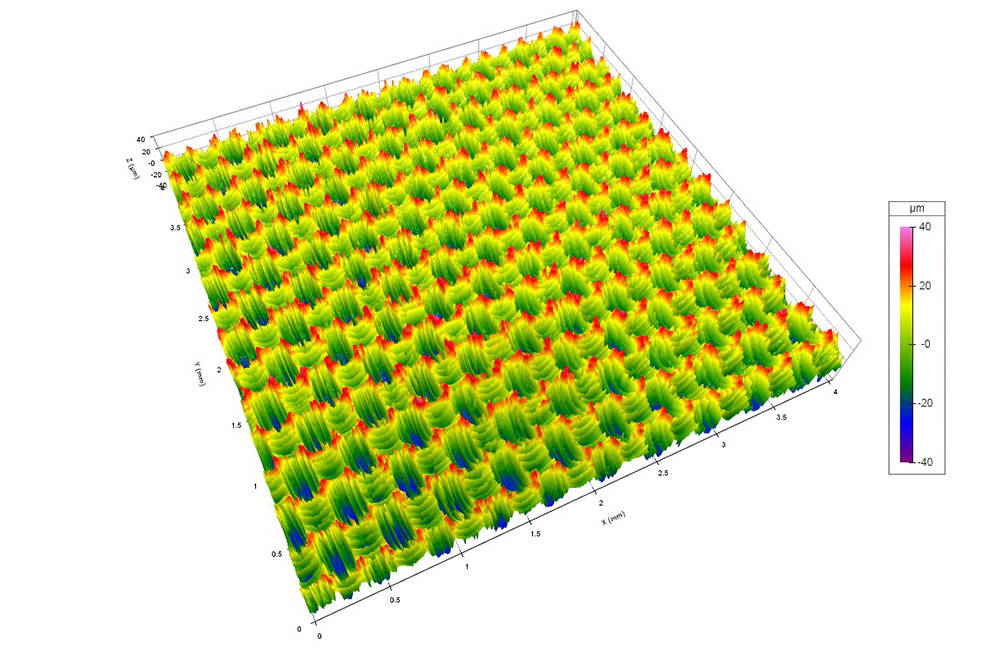
Specifically, this is a JOOLA Perseus MOD TA-15 paddle. Here it’s being measured under the Zygo ZeGage:
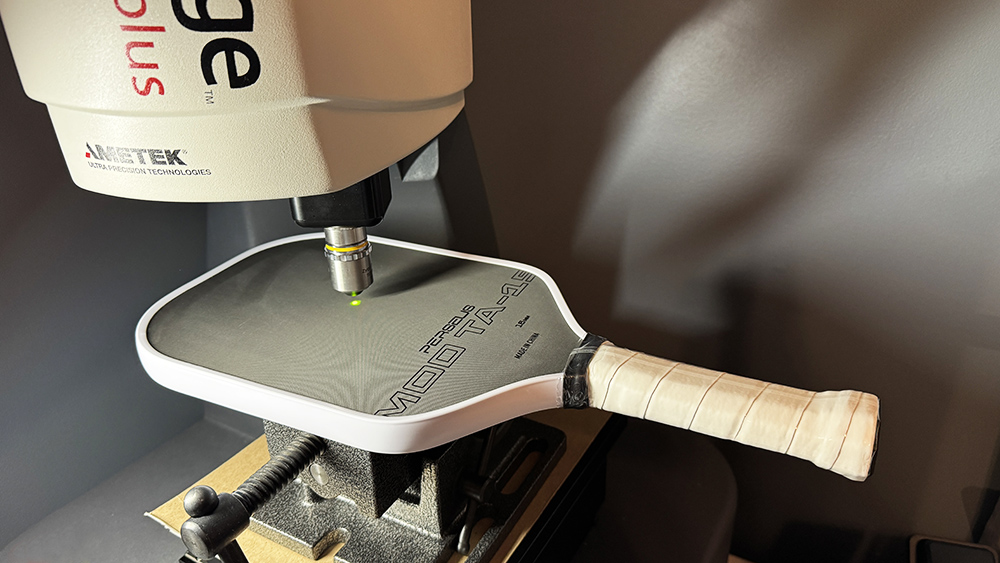
The “peaky” surface is intended to add friction or “grip” to the ball. If we zoom in on a subregion of the surface, we can get a better look at the details of these peaks:
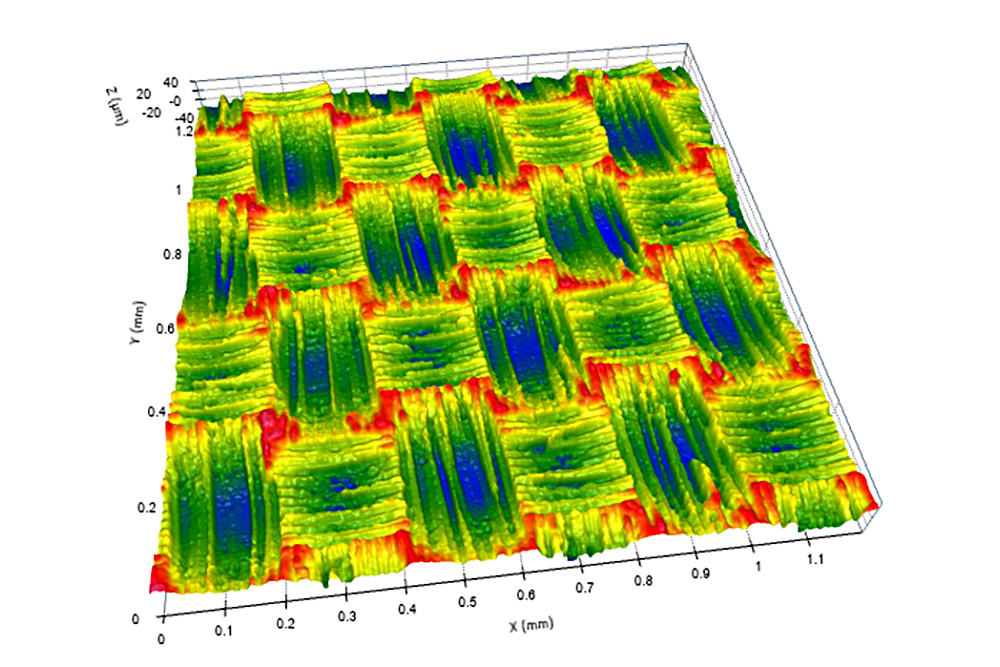
At this zoom level, the texture starts to look very familiar… a checkerboard pattern made up of fibers. Let’s invert the surface using the OmniSurf3D replica invert feature (under Analysis Settings).

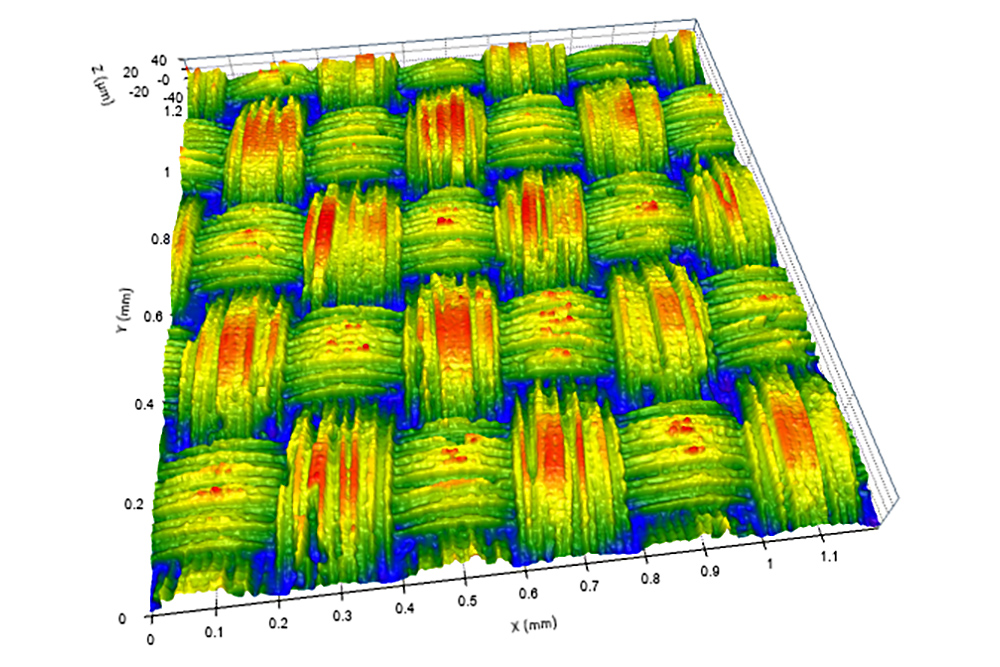
It looks as though the paddle’s texture was created by an imprinted fabric—much like the woven rain jacket fabric that’s also in our Surface Library.
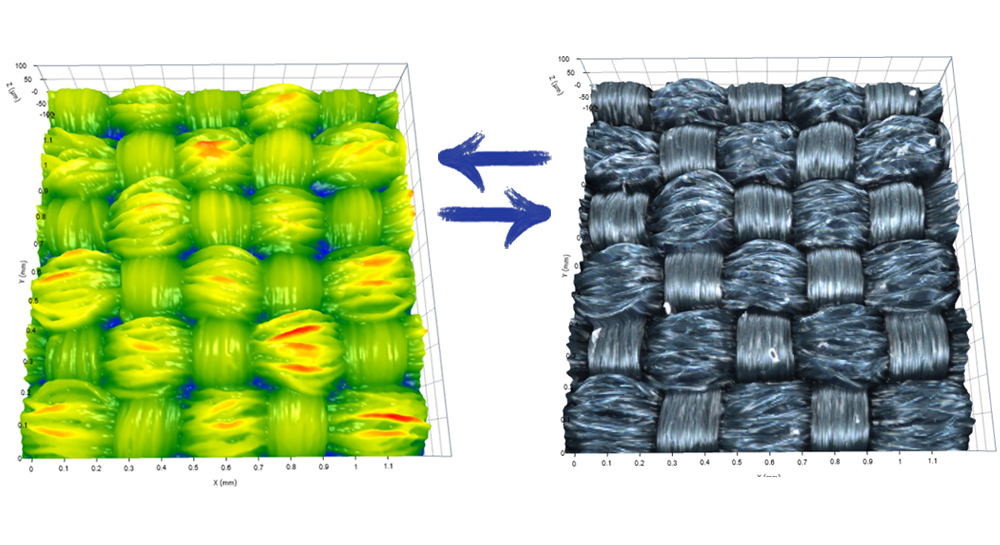
If you want to have a look at the paddle surface for yourself, the data is in our Surface Library.
In related news, Phil Hipol has written a fascinating article in pickleballscience.org (https://pickleballscience.org/does-friction-create-more-spin/) that dives into the science behind pickleball. Thanks Phil for including us, and OmniSurf3D, in the discussion!
